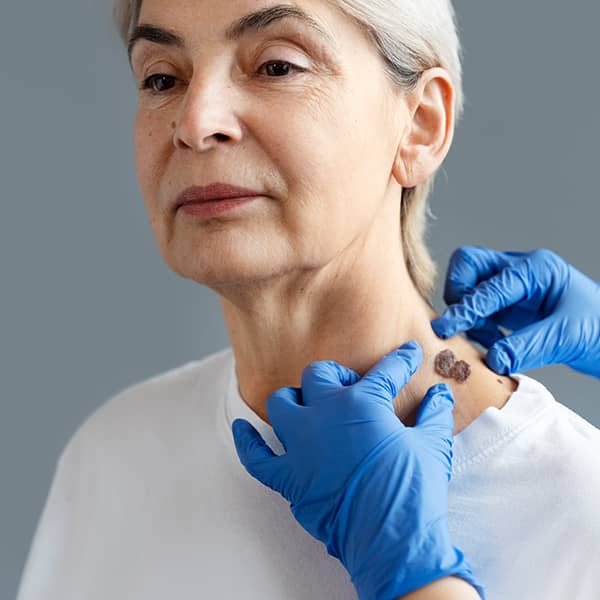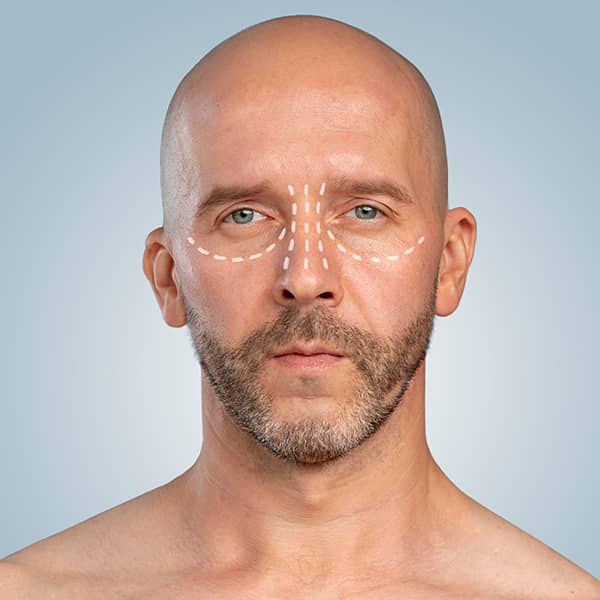What Is Reconstructive Surgery?
Reconstructive surgery is a type of surgery performed to correct or improve the function of a body part affected by trauma, injury, infection, tumors, disease, or congenital defects. The goal is to restore damaged parts of the body so that they may function and appear normal. There are many different types of reconstructive surgery, and each one is tailored to the patient’s specific needs.
If you’re in need of reconstructive surgery in Bakersfield or if you have any questions for Dr. Freeman, please call (661) 808-4070 or fill out the contact form. We look forward to helping you!
Reconstructive vs Cosmetic
The goal of reconstructive surgery is to return a part of the body back to its normal function and appearance after an accident or some form of trauma.
Cosmetic surgery is performed to change a person’s physical features. While the main objective may be aesthetic, cosmetic surgery can benefit the patient’s well-being by boosting self-esteem and confidence. Many people get cosmetic surgery because it allows them to look and feel their best.

Types of Reconstructive Surgery
There are many different types of reconstructive surgery, and each one is tailored to the patient’s specific needs.
Wound Repair
This type of surgery is used to treat wounds caused by trauma, such as burns or deep lacerations, that have not healed properly, as well as chronic wounds secondary to other medical conditions.
Three common types of wound repair treatments are:
- Skin grafts: A skin graft is a surgical procedure in which healthy skin is removed from one area of the body and transplanted to a damaged area.
- Microsurgery: This reconstructive procedure uses very small incisions and specialized instruments to sew nerves or small blood vessels, allowing them to repair.
- Tissue expansion: This technique is used to stretch a section of skin so that the body’s tissue may be used to repair or replace damaged skin. Tissue expansion surgery done to the face, neck, arms, hands, and legs usually lead to great results.
- Tissue rearrangement: This technique uses involves using flap techniques to reconstruct a wound or defect with skin or muscle, or both.
Breast Reconstruction
Women who have undergone a mastectomy, which is the removal of an entire breast to treat or prevent breast cancer, may choose to have breast surgery to recreate the shape of the breast. A reconstruction can be initiated immediately after breast tumor removal or breast surgery. Treatment is completed as a delayed reconstruction. If you have previously had breast cancer surgery, it is not too late to consider breast reconstruction surgery.
Breast Reduction
Reduction mammaplasty is a type of breast surgery that removes excess breast fat, tissue, and skin to make your breasts more proportioned with your body. Reduction surgery can alleviate chronic back or neck pain, nerve pain, or restricted movement caused by oversized breasts (macromastia). Breast reduction also repositions the breast into a more youthful form so that it doesn’t droop as much. Therefore improving breast ptosis (sagging) and overall position.
Skin Cancer
Skin cancer reconstructive surgery is a surgery performed to remove the skin cancer and to reconstruct the resulting defect. This type of surgery can be performed on any area of the body where skin cancer has occurred. Common areas for skin cancer reconstructive surgery include the face, scalp, neck, and hands. Depending on the size and location of the skin cancer, reconstructive surgery may be performed using different techniques.
One technique is known as a “free flap,” where tissue from one part of the body is removed from its blood supply and then relocated to a new blood supply near the skin cancer. The goal is to restore the function and appearance of the affected area as much as possible.
How Will the Surgeon Evaluate Me?
The surgeon will ask about your medical history and assess your condition during your consultation. They will also examine the area to be treated and discuss the best treatment options for you. The surgeon will explain the risks and benefits of each option so that you can make an informed decision.
After you have decided on a treatment plan, the medical team will take photos for your records. These photos will be used to plan your surgery and compare the results after surgery.
The surgeon will give you instructions on how to prepare for surgery. Some instructions you may be given include
- Avoid taking certain medications. Some medications, such as aspirin and other blood thinners, can increase the risk of bleeding during surgery.
- Eat a healthy diet. Eating a healthy diet in the lead-up to surgery will help with healing after surgery.
- Stop smoking. Smoking increases the risk of complications after surgery. Your surgeon will discuss this with you during your consultation.
Does Insurance Cover Reconstructive Surgery?
Most insurance companies will cover the surgery if it is considered medically necessary. Reconstructive surgery for medical reasons is defined as surgery performed to correct an abnormality that affects your ability to function in daily life.
Some examples of medical reasons that warrant reconstructive surgery include:
- Breast reconstruction after mastectomy
- Skin cancer reconstruction
- Limb salvage surgery
It’s always good to contact your insurance company and find out the inclusions and exclusions from the coverage, so you don’t have to worry about hidden costs later.
Dealing with Self-Image and Emotional Changes
After surgery, patients can experience changes in their self-image and emotional state. It is important to be prepared for these changes and have a support system to help deal with them. Reconstructive surgery can be a positive experience that improves self-confidence and a more positive outlook on life. However, some patients may experience negative emotions such as anger, sadness, or anxiety.
Knowing what to expect after the surgery and being realistic with your recovery are important. It’s good to remember that any negative feelings usually lift within about a week. Small outings and activities like short walks will help you feel better emotionally. If you have difficulty dealing with your feelings, talk to your surgeon or a counselor who can help you through this time.

Let Us Help
If you are considering reconstructive surgery in Bakersfield, Dr. Freeman can help. We will provide you with all the information you need to make an informed decision about your treatment options. We will also be with you every step of the way, from pre-op to post-op, to ensure that the whole process is as smooth and stress-free as possible.
To book a consultation with Dr. Freeman, call (661) 808-4070 or fill out the contact form. We look forward to meeting you and helping you on your journey to a better you!
